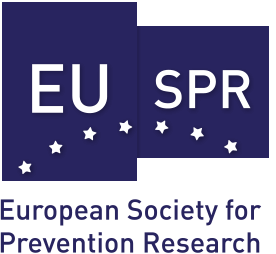In collaboration with the EMCDDA and Lisbon City Council, we are pleased to be able to convene a special day-long event on the 24/10/2018 at Lisbon City Hall. This is aimed at prevention decision -, opinion – , and policy makers, and practitioners working in any area of prevention.
The event is free to register, but there is an optional lunch available which must be pre-paid (€20) at the time of booking. The morning sessions include a hands-on introduction to a new European prevention training curriculum; and a workshop designed to develop prevention advocacy skills. In the afternoon a workshop brings prevention professionals together with researchers in order to discuss common goals and collaborative actions.
Please note that this is an English language event.
You can book your place here:
08:30-0900 – Registration at Lisbon City Hall
9:00-10:30 Introduction to the EUPC
Led by: Peer van der Kreeft (HoGent University, Belgium). An introduction to the European Universal Prevention Curriculum (EUPC)
With Rachele Donini (ASL Savona, Italy) , Valentina Kranzelic (University of Zagreb, Croatia) and Annemie Coone (HoGent University, Belgium). This taster session will provide students with an introduction to the European adaptation of the international Universal Prevention Curriculum. It is designed to allow participants to discover more about the curriculum, and pick up some key skills, which will allow them to decide whether to undertake the whole EUPC training (expected launch late 2018)
10:30-11:00 coffee break/networking
11:00-13:00 Advocacy workshop
Led by Matej Košir, Institute Utrip, Slovenia
Advocacy skills are essential for the prevention professionals, researchers and practitioners to potentially influence policy- and decision-making processes for better prevention policies and practice. Those skills are important especially in those prevention areas where so-called “unhealthy” industries are influential and/or (at least) want to be important stakeholders in the field (such as alcohol, tobacco and food production). They are also important to advocate for evidence-based prevention policies (e.g. alcohol, tobacco or illicit drug policy) and practice, which should be fully in line with minimum quality standards in prevention. Recognizing this need, Institute Utrip developed a series of advocacy trainings, especially for professionals, researchers and practitioners in the field of prevention. Outcomes include an increased competence for such advocacy as forging stronger relationships with policy- and decision-makers and other key stakeholders in the field, advocating for the use of research to inform policy- and decision-makers about evidence-based policies and practice, providing expert testimony, writing position papers, press releases and social media posts, and committing to ongoing advocacy. The workshop provides a template for professionals, researchers and practitioners to build advocacy skills and increase the role of prevention professionals in setting evidence-based prevention policies and practice.
The workshop will cover
- Definitions, aims & objectives of advocacy
- Policy- and decision-making processes – how to influence them?
- Coalition building / developing effective coalitions
- Making the case for evidence-based policy and practice with media advocacy
- Developing advocacy plans
13:00-14:00 Lunch break – *paid extra*
14:00-16:30 Joint research-practitioner exchange activity with EUSPR researchers
Prevention research meets prevention practice: can common goals improve both?
Led by Dr Samuel Tomczyk (University of Greifswald, DE, and EUSPR-Early Career lead) and Prof Rosaria Galanti (Karolinska Institutet, SW)
The EUSPR exchange forum promotes an interactive workshop to tackle the question of how prevention research and prevention practice can inform each other and result in improvements on both levels.
Sometimes research and practice are perceived as separate processes, each with own rules and commitments when it comes to funding, work structure, target audiences and career and work prospects. In line with the conference theme of ‘Prevention Technologies – improving the use of evidence in prevention practice’, the proposed workshop aims to identify common goals for researchers (especially at the early career stage) and practitioners, by situating research and practice on a continuum beginning with relevant question and ending with the dissemination of a preventive program.
Through both group and plenary sessions early career researchers and practitioners will discuss together key concepts relevant to both science and practice at all stages of this continuum, among others; how to formulate a research question that is scientifically sound and relevant to practice; how to involve the target groups already at the stage of designing a research project.
| Time | Activity |
| 14:00 – 14:05 | Introductory statements |
| 14:05 – 14:45 | Opening dialogue:Joint panel discussion of early career researchers and prevention practitioners regarding the implications and challenges of connecting research to prevention practice |
| 14:45 – 15:00 | Coffee break |
| 15:00 – 15:45 | Group work· Groups will be based on certain prevention topics depending on the audience’s interests, e.g. substance use, obesity, mental health
· Identify 3-4 shared goals of practitioners and researchers research regarding the research process · Formulate a research question · Organise research (data collection etc.) · Implement prevention · Communicate and disseminate results |
| 15:45 – 16:30 | Synthesis of group work· Presentation and discussion of group work (for each group and topic)
· Extracting overarching themes (similarities and differences) · Discuss existing differences between both perspectives and address implications for future cooperation |
| 16:30 | Closing statements |
